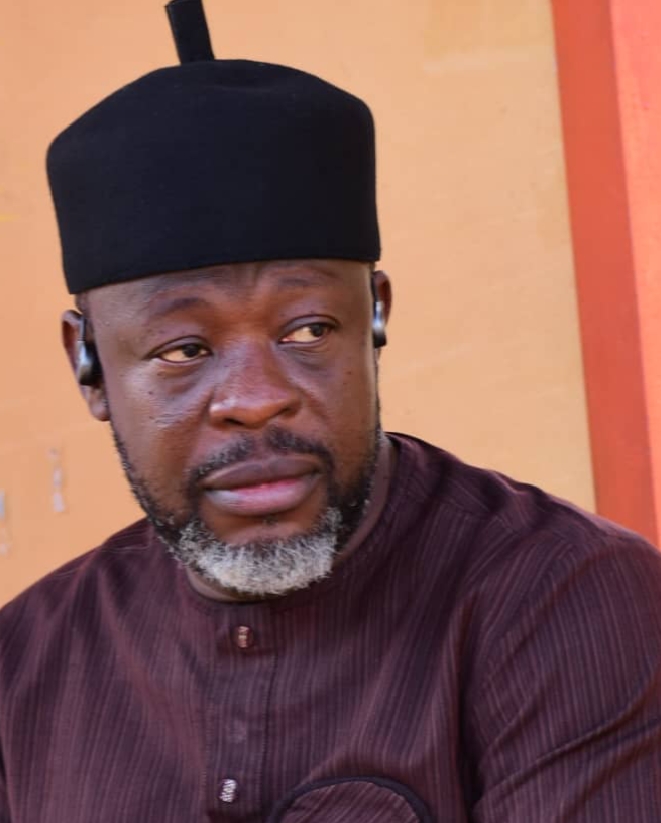A National Embarrassment: The Port Harcourt Refinery Shutdown and the Betrayal of Nigeria’s Trust. By Chidi Ekeh

A National Embarrassment: The Port Harcourt Refinery Shutdown and the Betrayal of Nigeria’s Trust

In a nation where hope is a scarce commodity, the Nigerian National Petroleum Company Limited (NNPCL) dangled a rare glimmer before Nigerians in November 2024, proclaiming the triumphant revival of the Port Harcourt Refinery. After years of decay, a $1.5 billion rehabilitation effort, and endless missed deadlines, the nation was told the 60,000 barrels per day (bpd) Old Port Harcourt Refinery was not only operational but a testament to NNPCL’s newfound efficiency under Group CEO Mele Kyari. President Bola Tinubu hailed it as a milestone in Nigeria’s quest for energy security. The fanfare was deafening—trucks were reportedly loading petroleum products, and the promise of reduced fuel imports seemed within reach.
Yet, just six months later, on May 24, 2025, the NNPCL announced the shutdown of this same refinery for “planned maintenance and sustainability assessment.” The announcement, delivered with clinical detachment by Chief Corporate Communications Officer Olufemi Soneye, has sparked outrage across the nation. Posts on X reveal a palpable sense of betrayal, with marketers alleging the refinery was “inactive” even before the shutdown, producing no petrol despite the colossal investment. This is not just a technical hiccup; it is a national scandal that demands accountability, transparency, and an immediate investigation into the actors who have orchestrated this embarrassment
A History of Broken Promises
The Port Harcourt Refinery, with a combined capacity of 210,000 bpd (60,000 bpd from the old plant and 150,000 bpd from the newer unit), has been a symbol of Nigeria’s squandered potential for decades. Shut down in March 2019 due to years of low capacity utilization, the refinery became a black hole for public funds, with billions spent on fruitless turnaround maintenance (TAM) exercises. In 2021, the Federal Executive Council approved a $1.5 billion contract for its rehabilitation, a figure that raised eyebrows given the history of mismanagement. Former President Olusegun Obasanjo, a statesman with a deep connection to Nigeria’s refineries, has repeatedly sounded the alarm. In a 2023 interview, he recounted how Shell Petroleum Development Company (SPDC) declined to manage the refinery, citing systemic corruption as a barrier to effective operations. Obasanjo’s 2007 attempt to privatize the refineries through a $750 million deal with a consortium led by Aliko Dangote was scuttled by his successor, who refunded the payment, swayed by NNPCL’s assurances of self-sufficiency—assurances that have proven hollow.
In January 2025, when Obasanjo again expressed doubts about the refinery’s workability, NNPCL’s response was to invite him for a tour of the facility. Soneye’s statement was laced with promises of transparency, touting a “comprehensive overhaul” rather than the “mere TAM of the past.” The invitation was a public relations gambit, meant to silence skeptics and project confidence. Yet, the swift descent from that triumphant moment to this abrupt shutdown exposes a deeper rot. Nigerians deserve to know who is responsible for this fiasco and why, after $1.5 billion, the nation is back to square one.
The Culprit Behind the
Collapse

The rehabilitation of the Port Harcourt Refinery was spearheaded by Maire Tecnimont, an Italian engineering firm contracted in 2021 to overhaul the facility, with Eni, another Italian company, serving as the technical advisor. The $1.5 billion contract was meant to restore the refinery to global standards, with the old plant projected to produce 12,000 bpd of gasoline, 13,000 bpd of diesel, 8,600 bpd of kerosene, 19,000 bpd of fuel oil, and 850 bpd of LPG in its first year of resumed operations. Yet, reports from industry insiders, echoed in posts on X, suggest the refinery was barely functional, if at all, before the shutdown. Was Maire Tecnimont’s work substandard? Did Eni’s technical oversight fail to deliver? These companies must be held accountable for their roles in this debacle.
Within Nigeria, the Nigerian National Petroleum Company Limited (NNPCL) bears the lion’s share of responsibility. Under the leadership of Mele Kyari, the Group CEO, NNPCL has trumpeted its transformation from a loss-making entity to a profit-oriented global energy company. Yet, the shutdown raises questions about the competence and integrity of its management. Kyari’s team oversaw the rehabilitation process, approved the contracts, and made bold claims about the refinery’s operational status. Olufemi Soneye, the Chief Corporate Communications Officer, has been the public face of these assurances, dismissing allegations of failure as “totally false” as recently as January 2025. The Nigerian public deserves a detailed explanation of what went wrong and whether Kyari’s leadership has been complicit in mismanaging this critical national asset.
The Nigerian Midstream and Downstream Petroleum Regulatory Authority (NMDPRA), led by Farouk Ahmed, is another key player. As the downstream regulator, NMDPRA was tasked with ensuring the refinery’s operations aligned with industry standards. Ahmed publicly stated that products from Port Harcourt would foster price competition nationwide, yet the regulator has been silent on the shutdown’s implications. Was NMDPRA complicit in overlooking deficiencies in the rehabilitation process? Did it fail to enforce rigorous oversight? These questions demand answers.
At the governmental level, the Federal Executive Council (FEC), which approved the $1.5 billion contract in 2021 under then-President Muhammadu Buhari, cannot escape scrutiny. The decision to borrow such a sum for a project with a history of failure reeks of negligence, if not outright malfeasance. President Bola Tinubu, who inherited this project, has championed its revival, with his Special Adviser on Information and Strategy, Bayo Onanuga, issuing glowing statements about its progress. The shutdown is a stain on Tinubu’s Renewed Hope Agenda, and his administration must act swiftly to investigate and punish those responsible.
A Call for Accountability
The shutdown of the Port Harcourt Refinery is not a mere technical setback; it is a betrayal of Nigeria’s trust and a squandering of scarce resources. Industry stakeholders, including Mike Osatuyi, former Secretary of the Independent Petroleum Marketers’ Association of Nigeria (IPMAN), have called the shutdown an “embarrassment to the government and Nigeria as a country.” Osatuyi’s demand for NNPCL to explain the failure resonates with millions of Nigerians who feel deceived. The $1.5 billion spent could have built two new refineries when the naira held more value, yet we are left with a facility that, according to X posts, was not even producing petrol before its closure.
This scandal demands an immediate, independent investigation. The National Assembly must summon Mele Kyari, Olufemi Soneye, Farouk Ahmed, and representatives of Maire Tecnimont and Eni to testify under oath. The probe should examine the contract’s execution, the quality of work delivered, and whether funds were misappropriated. The Economic and Financial Crimes Commission (EFCC) must investigate allegations of corruption, as raised by Obasanjo and echoed by industry analysts who point to a history of mismanagement. Those found culpable—whether corporate executives, government officials, or foreign contractors—must face severe consequences, including prosecution and restitution.

A Nation’s Dignity at Stake
The Port Harcourt Refinery saga is a microcosm of Nigeria’s broader struggle with governance and accountability. For too long, the nation has been held hostage by a cycle of grandiose promises, shoddy execution, and zero accountability. Obasanjo’s skepticism, rooted in his experience with Shell’s rejection and the failed Dangote deal, should have been a warning. Instead, NNPCL’s invitation for a tour was a deflection, and the subsequent shutdown confirms his fears. Nigerians are tired of being fed lies while their resources are plundered.
Let this op-ed serve as a clarion call to those in power: the people are watching, and they demand justice. The shutdown of the Port Harcourt Refinery must not be swept under the rug. Heads must roll—whether they belong to Kyari, Soneye, Ahmed, or the executives of Maire Tecnimont and Eni. The Nigerian government must act decisively to restore faith in its institutions and ensure that those who have embarrassed the nation are brought to book. Anything less is an affront to every Nigerian who dared to hope for a better future.
–Chidi Ekeh a public affairs commentator writes from Abuja Nigeria. chidiekeh@yahoo.com



